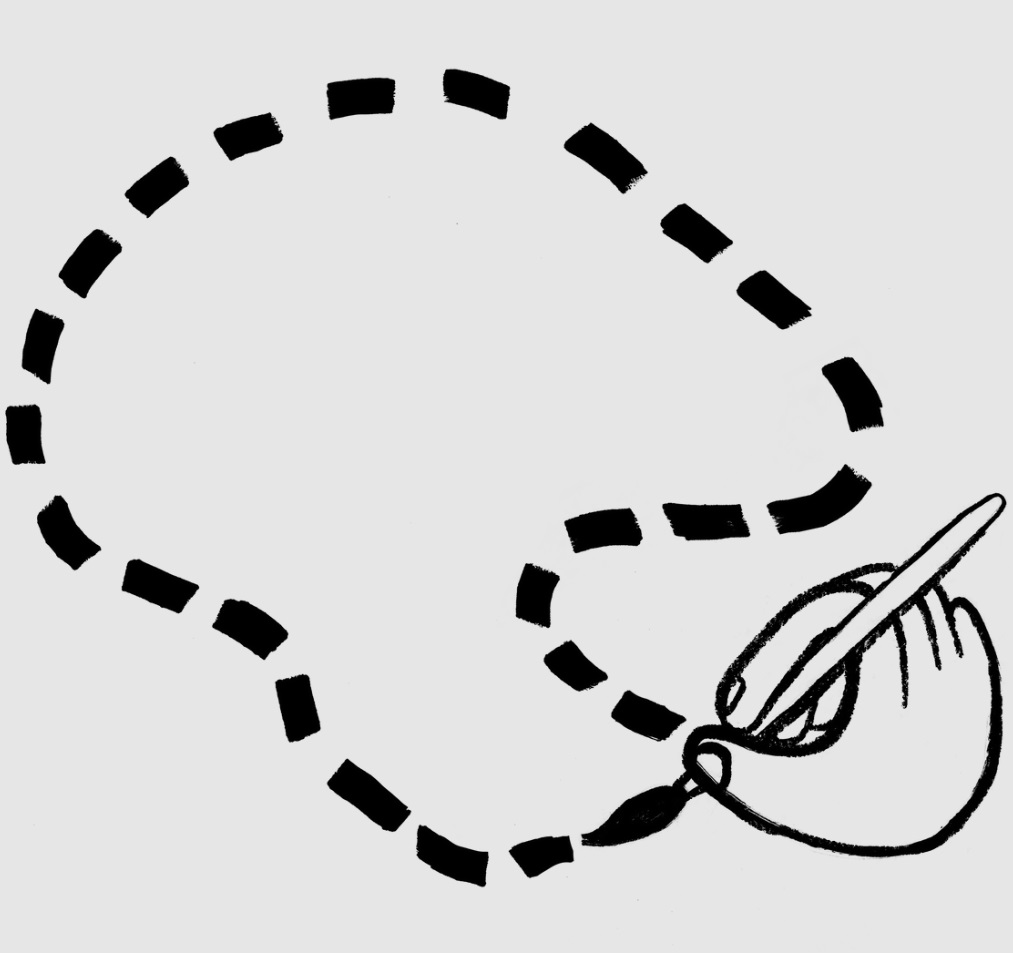A Generation at the Tipping Point
Gen Z is coming of age in a radically new world. Born into a digital era defined by instant and ubiquitous access to information, divided and demeaning politics and a social media-powered desire for validation, identity and belonging, Gen Z is experiencing both boundless creative possibilities as well as near epidemic levels of anxiety and stress.
Like in other disruptive moments in history, Gen Z is navigating profound social, political and environmental transformations. Over the past decade, the wealth of billionaires has risen six times faster than the wages of ordinary workers. More than 44 million Americans owe a collective $1.5 trillion in student loan debt, and 2014 marked the first time in 2.5 million years that CO2 concentrations in the atmosphere moved beyond safe levels for humanity.

At the same time, nationwide protest movements are spotlighting systemic violence against African Americans and women. And during the 2017–18 school year, the US averaged more than one school shooting per week. If this is the vision of the future they will inherit, Gen Z has seen and experienced enough.
In the face of income inequality, school violence, racial injustice and climate change, our youngest generation has reached its tipping point.
In the context of so much change, Gen Z is standing up, speaking out and harnessing their courage and creativity to claim the future they want – and they aren’t waiting.
This is the generation of Greta Thunberg, the 16-year-old climate activist speaking truth to power from the Swedish parliament to the World Economic Forum, helping inspire the Sunrise movement of thousands of young people united to stop climate change and create green jobs.

This is the generation of the four-day sit in by #StudentsofColorMatter at the Ethical Culture Fieldston School in Riverdale, New York, and of school-wide walkouts at Charlottesville High School in Virginia to raise awareness and combat racial injustice.
This is the generation of Marsai Martin, the youngest executive producer in Hollywood who at age 14 is on a mission to create more authentic depictions of black girlhood in media.
This is the generation of students at Marjory Stoneman Douglas High School in Parkland, Florida, who after the massacre of 17 classmates and teachers turned their pain, anger and frustration into the March For Our Lives movement in protest of America’s epidemic of gun violence, drawing up to 800,000 people to the streets of Washington D.C. and at least 800 sister marches around the globe.
Powered by blazing technological innovation and the global reach of social media, Gen Z is demanding more of themselves, more of society and more of business than any generation before.
They are challenging business as usual and harnessing their voice, passion and collective purpose to fundamentally rethink the future of our society, economy and the planet we share.
A Moment of Truth for Brands
This Gen Z tipping point represents a profound moment of truth for brands. According to a new national survey by BBMG and GlobeScan, by a 5-to-1 margin, Gen Z does not trust business to act in the best interests of society, and nearly one-in-four cannot name a single brand they consider to be purposeful.
Indeed, Gen Z is 3X more likely to say that the purpose of business is to “serve communities and society” rather than to simply “make good products and services,” and they are more likely than all others to call on brands to make a difference by “using their voice to advocate or speak out” on the most pressing issues of our times.
Gen Z won’t wait for the powers that be to create the change they seek. They are calling for new leaders to take action now across every part of our society and they are ready to help lead the way.
Five Strategies to Win the Trust, Loyalty and Participation of Gen Z
In October 2018, BBMG and GlobeScan fielded a national survey of 2,058 consumers to better understand people’s changing relationship with brands and the underlying dynamics of brand trust, leadership, loyalty, participation and brand evangelism.
Along with cultural trends research and qualitative interviews, our deep dive into the attitudes, beliefs, desires and behaviors of the leading edge of Gen Z (age 18 – 22) revealed five strategies for brands to be more authentic in their eyes, more relevant in their lives and create more impact in their world together.
- Be Brave
- Hold Space
- Welcome All
- Fuel Passion
- Own It
Be Brave

For Gen Z, silence is complacency. Our always on, 24/7 social media reality both accentuates and accelerates cultural tensions, issues and debates. With a memorable hashtag or share-worthy meme, people, politicians and brands are expected to take a stand and give voice to their values in real time. Gen Z isn’t afraid to take a stand on the issues that matter and they expect the same from brands.
Our research revealed that Gen Z wants brands to harness the power of their voice and influence to stand up and speak out. And the top three reasons they should do so according to Gen Z are “because it’s the right thing to do” (47%), “when they see there is a public outcry or public demand for change” (19% Gen Z) and “when it goes against the company’s purpose or values” (18% Gen Z).”
Gen Z wants brands to bring an honest perspective on today’s most challenging topics, and they recognize that if you are truly going to say something meaningful, not everyone will agree.
TOMS, the iconic one-for-one company, recently evolved its giving model to rally for gun safety. Announcing the brand’s $5 million investment in organizations fighting gun violence, founder Blake Mycoskie said “We are not just taking a stand to end gun violence together, but we are announcing an evolution to our giving model with a new platform for social change.”
Or take DICK’s Sporting Goods, who soon after the Parkland high school shooting introduced measures that make it harder to buy firearms at their stores. Since then, the CEO has pressed Congress to adopt gun safety measures, and despite lower short-term earnings, the company remains committed to removing all firearms and other hunting products from its 125 stores nationwide.
Rooted in this deeper sense of purpose and societal values, a group of vanguard brands is embracing the toughest challenges of our times. Ben & Jerry’s is taking on social justice, immigration and prison reform in partnership with Color of Change and Black Lives Matter. And, in honor of the 30th anniversary of its iconic “Just Do It” campaign, Nike partnered with Colin Kaepernick to take a stand for social justice and against police brutality, inviting us to “believe in something, even if it means sacrificing everything.”
”Ben & Jerry’s isn’t just talking the talk, they are investing and working to create meaningful change. I feel like as a brand they care, they aren’t just doing it for publicity. And part of
that is the founders are unafraid to say what
they believe in. “ – Colin, 21, Boston, MA
On a smaller scale, Nike also earned praise for its decision to depict Nigerian-American model Annahstasia Enuke wearing a Nike sports bra with visible underarm hair on its Instagram account, earning more than 180,000 likes for proudly displaying a natural body and weathering flak from others less receptive to diverse expressions of female beauty.
Brands will win the respect and loyalty of Gen Z by standing up for their authentic values and beliefs – not just chasing what’s easy or popular – and by using their influence to transform the issues of our day.
Hold Space

As digital natives, Gen Z is known for capturing and sharing virtually every idea, opinion and expression of their lives across social media platforms – making their voice and creativity the currency of their identity, social standing and peer-to-peer relationships. Like no other, Gen Z values opportunities for their voices to be shared, heard, expressed and validated.
To win their trust and participation, it’s no longer just about selling products. Instead, it’s about creating space for the authentic expression of their experiences and creating platforms that amplify their voices and drive impact. Gen Z is more likely than all other generations to say they can make a difference through “their voice online and in social media” (43% Gen Z vs 30% all others), rather than through their consumer choices (23% Gen Z vs 31% all others) or by voting (64% Gen Z vs 74% all others).
This desire to create and share their voice and experiences is redefining Gen Z’s relationship with brands online and offline as they seek empowering spaces to share their perspective and hear from their peers. Instagram has emerged as a powerful medium for many in Gen Z to explore the full spectrum of their identities, while a growing number of courageous YouTube creators, such as Gabbie Hanna (6.5 million subscribers), Zeolla (11 million subscribers) and Hanna Hart (2.5 million subscribers), are using the world’s largest broadcast platform to shed light on their personal struggles with mental health, eating disorders and drug use.
“If you’re going to make a space for other voices, commitment, action, follow through, and transparency matter to me.” – Harrison, 22, New York, NY
Spotify, too, is creating space for conversation, exploration and self-expression, cultivating empathetic and equitable communities through music and culture. As part of the brand’s Black History is Happening Now initiative, the Sound Up Bootcamp gave ten aspiring female podcasters of color the space, platform and resources to hone their craft. And COLLUSION, a new brand from ASOS, was created in collaboration with young stylists, activists, students and authors to produce a groundbreaking “experimental clothing line that’s helping to shape the future of fashion.”
Brands will win by reimagining the role of Gen Z from passive consumers to active co-creators who help shape conversations, shift culture and fuel more authentic connection.
Welcome All

In a political and cultural era defined by border walls, Muslim bans and bathroom bills, Gen Z is driven by a powerful desire for fairness and equity. They are not only the most diverse generation in our nation’s history, but also the most inclusive. They want a world that welcomes all people no matter their race, ethnicity, gender identity or sexual orientation.
In fact, of all the issues of our time, Gen Z is more likely than all others (28% vs. 11%) to care about issues of equality (including broad social equality, women’s rights, LGBTQ, and racial equality).
It’s no wonder that Gen Z seeks out and celebrates brands that show up for people who have often been marginalized or left behind. From beauty to fashion to health and wellbeing, a new wave of brands is seizing the opportunity to forge new markets and win the attention and respect of its youngest consumers by placing diversity, equity and inclusion at the center.
“I think it’s important to include everyone. I don’t want to have a society that has only
one ideal.” – Aliesha, 20, Long Island, NY
Fenty, Rihanna’s makeup line designed with the promise of inclusion for all women, reportedly earned $100 million in sales in just its first 40 days on the market. And TomboyX’s unisex underwear, Reformation’s inclusive sizing and the Tommy Hilfiger Adaptive collection designed with and for people with disabilities are all inspiring Gen Z love and breaking through in culture.
Even in healthcare, Tia Clinic has launched a modern, inclusive gynecology and wellness platform “designed to care for the whole you,” while Planned Parenthood created Spot On, the taboo-busting period tracker app for all people with periods, and Roo, a chatbot that answers awkward questions about sexual health while making no assumptions or judgments about users’ gender, sexual orientation or lifestyle.
Brands will win the loyalty and evangelism of Gen Z when they stand up for, design for and celebrate those in our society who have previously been overlooked, marginalized or
left out.
Fuel Passion

Gen Z is also redefining the expectations, aspirations and boundaries of work and life, with 61 million current and future workers poised to fundamentally disrupt the way our economy works. Reaching adulthood amidst the benefits and burdens of the gig economy, they have a strong apprehension of traditional institutions, 9-to-5 roles and careers that require the massive weight of student debt. Indeed, Gen Z has an entirely new perspective on wealth, wellbeing and the workforce and they’re seeking brands and communities to help them challenge the status quo.
Gen Z is charting its own path, starting with education. Take SuperHi, an online code and design school offering affordable, “asynchronous” learning for creative minds, or General Assembly, which began as a co-working space in 2011 and has grown into a global community of experiential education for today’s most in-demand skills that’s challenging the assumption that high-cost higher ed is the only way to achieve your dreams.
No doubt Gen Z will bring this same entrepreneurial mindset to their professional lives. Compared to other generations, Gen Z is most likely to say they can make a difference by doing meaningful work through their career (32% vs. 17% all others). What’s more, when asked what drives brand loyalty, the second highest response among Gen Z and all others is brands that help me “feel in control and do things on my terms.”
“I think the first thing companies should focus on are the individuals that work there. I want to work somewhere where they help me reach my goals and give me room to create impact. “ – Kyle, 23, Austin, TX
For Gen Z, it’s not just about finding a job to pay the bills. It’s about designing life’s work in a way that fulfills their individual purpose and gives them freedom to define their destiny. Handshake, a new talent platform for next gen workers, helps students from all backgrounds find meaningful careers through diverse and inclusive recruiting. Global Citizen Year, a gap year program for recent high school grads, places students in community service experiences around the world, helping build the skills and networks they need to “be a trailblazer” while making an impact on issues like health, agriculture, education and social enterprise.
And perhaps nothing better represents Gen Z’s approach to work than the growing and global digital nomad communities, like Outsite, which offers resources and community for freelancers looking to travel the world, fund their passions and make a difference along the way.
To win with Gen Z – as consumers, workers and citizens – brands
will need to act as platforms for individual growth, passionate pursuits and networks of support as they define their own unique journeys.
Own It
While Gen Z is ready to champion brands who show bravery on the issues that matter, they are also the first to call bullshit when they see it, especially when they see brands promoting their commitment to “doing well by doing good,” while staying silent about the negative impacts at the heart of the business practices that make their success possible. For Gen Z, there’s a disconnect between the “do goodery” proclaimed in superficial marketing campaigns and the significant economic, social justice and environmental challenges that shape their lives and sense of possibilities.
At a time when awareness of these issues is at an all-time high and tech-enabled radical transparency leaves businesses with nowhere to hide, the opportunity for brands to win Gen Z’s respect and faith is rooted in honesty, transparency and good intentions backed by action.
Gen Z is
least
likely
to correlate trust with “not having made mistakes in the past”
Gen Z is most likely to trust that large companies are operating in the best interests of society when they “prove it by action (i.e. walks the walk)” and demonstrate “clear intentions through business strategy and goals.” And they are more likely than all others to trust large companies when their “employees verify positive impact” (37% vs. 28% all others) and by “speaking out on society’s most pressing issues” (30% vs. 23% all others).
That doesn’t mean that brands have to be perfect from the start – just that you’re making progress and proving it along the way. In fact, Gen Z is the least likely to associate trust with “not having made mistakes in the past”, indicating a willingness to prize authenticity, speaking out and impact over perfection.
“Brands need to understand the problem they are causing and that their company will not exist if they don’t fix the system. Their priority should be the same as the people’s priority.” – Lauren, 18, Richmond, VA
Across industries and product categories, we see brands gaining credibility among Gen Z by taking ownership and accountability of the challenges they have helped to create – while offering real plans and strategies to do better. The education and technology company Cengage launched Cengage Unlimited in 2018, dubbed the Netflix for college textbooks, acknowledging the high cost of course materials and offering a digital solution that can help make higher education more accessible to all.
Apparel brands are also owning up to the industry’s massive textile waste with refurbished collections like The North Face Renewed and 100% recyclable product design such as Adidas’ Futurecraft.Loop.
Similarly, Getty Images is taking accountability for the limited vision of female beauty, confidence and success in stock photography by launching Project #ShowUS together with its partners Dove and Girlgaze, adding 5,000 new photos of 179 women from 39 countries to the stock image site.
Even Axe Body Spray for Men, long famous for its promise to transform men into chick magnets, is now on a mission to “liberate guys from pressure and bullshit, and empower them to be the most attractive men they can be — themselves.”
Brands will win with Gen Z not by being perfect, but by speaking openly and honestly about the challenges they face and declaring clear strategies for action, improvement and impact.
The Future We Want
From their personal passions to their career aspirations to their preferences for brands, Gen Z is proving that they give a damn, and they are ready to join with peers, brands and community members to create change together.
To win their trust, loyalty and evangelism, brands must prove their purpose by speaking out on society’s most pressing issues, standing up for those previously ignored by our society and take more accountability for the real challenges we all face.
Like no other generation and like no other moment, now is the time to join forces with Gen Z and design the future we all want.
Branding for Gen Z: Meeting the Moment of Reckoning
While trust in companies has never been lower, expectations for the role of brands in society have never been higher. Gen Z is yearning to support companies that stand for more than the products or services they sell. They want brands that create meaningful solutions to meet the needs of society and leverage the scale and influence of their businesses to move humanity forward. Here’s a three-step process to win the trust, respect and evangelism of Gen Z:
- Start With Empathy
Reveal the human truth that unites your brand’s reason for being with Gen Z’s authentic needs, hopes and aspirations.
- Live Your Purpose
Define your brand’s north star purpose and the values and ideals you’ll fight for no matter what.
- Rally The People
Design brand experiences that invite and inspire all of us to join forces and shape a future we can believe in.
By bearing witness to the depth of Gen Z’s real life challenges and aspirations, embodying a higher order purpose in all you do and rallying participation and collective action on the issues that matter, brands will be more relevant to this new generation and more resilient in the new world they’re creating.
